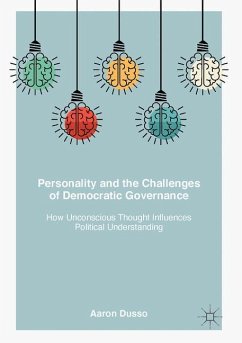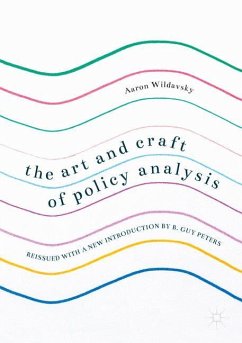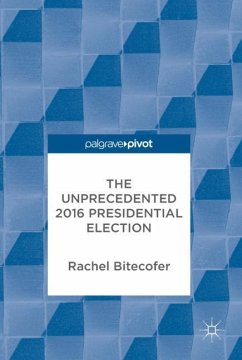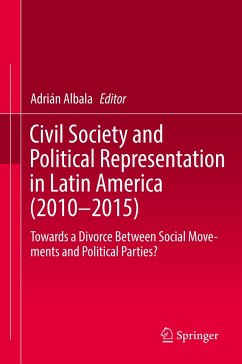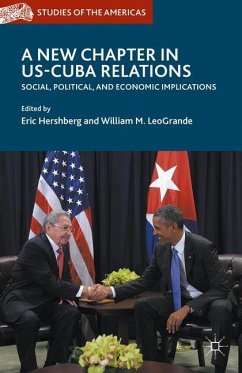
Hypocrisy in American Political Attitudes
A Defense of Attitudinal Incongruence
Versandkostenfrei!
Versandfertig in 6-10 Tagen
76,99 €
inkl. MwSt.
Weitere Ausgaben:

PAYBACK Punkte
38 °P sammeln!
This book illuminates, and ultimately defends, attitudinal hypocrisy within the personal politics of Americans by utilizing statistical analyses within political history, social psychology, public opinion, and political science. Within a simple and parsimonious model of political attitudes, along with a novel method of calculating and operationalizing what attitudinal hypocrisy is, the book argues that the wielding of conflicting attitudes is a necessary characteristic of the American electorate. It uses an innovative multidisciplinary approach to answer some of the most pervasive questions in...
This book illuminates, and ultimately defends, attitudinal hypocrisy within the personal politics of Americans by utilizing statistical analyses within political history, social psychology, public opinion, and political science. Within a simple and parsimonious model of political attitudes, along with a novel method of calculating and operationalizing what attitudinal hypocrisy is, the book argues that the wielding of conflicting attitudes is a necessary characteristic of the American electorate. It uses an innovative multidisciplinary approach to answer some of the most pervasive questions in American politics: Why do conservatives preach the value of economic libertarianism, but decry the lack of government involvement in social issues and the military? Why do liberals extol the virtues of a regulatory economic state, but not a cultural or military state?






